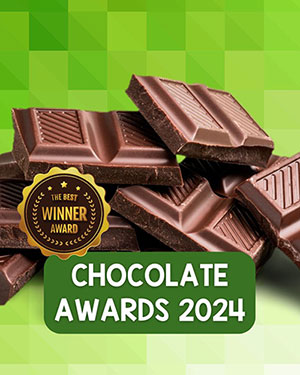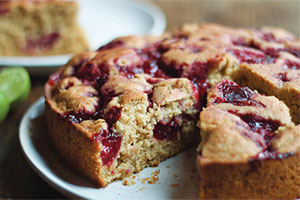Kaupapa Vegan: Has Kai made us forget how to Tiaki?

Philip McKibbin (Kāi Tahu) examines the notion of tiakitanga (caregiving) as it relates to te taiao (the natural world) and our approach to kai production.
As Māori, we’ve always talked a lot about kaitiakitanga — our role as caregivers, guardians, or ‘stewards’, of the natural environment — but I think we should focus less on our status as kaitiaki, and more on the mahi of tiakitanga itself.
The prefix ‘kai-’ in the words ‘kaitiaki’ and ‘kaitiakitanga’ refers to those who are doing the action — in this case, he tāngata, the people. I think it makes more sense, though, to leave the ‘kai’, and talk about the action of ‘tiakitanga’, caregiving, itself.
The kupu ‘kaitiaki’ alludes to the special relationship that we, as Māori, have with te taiao, the natural world. Emphasising such connections is important, especially in tēnei ao hurihuri, when so many of us have forgotten our interrelatedness.
As long as the word ‘kaitiaki’ reminds us of our responsibilities, it’s helpful — but if we’re not careful, it risks elevating us above those who we care for.
We live in an oppressive world, where te taiao and non-human animals, as well as us as iwi taketake, are dominated and exploited. It’s easy to blame it all on colonisation – and without colonisation, there would certainly be greater balance. But if we’re honest with ourselves, we have to admit that Māori are complicit in this harm, too.
Many iwi, my own included, are heavily invested in dairying, which is not only bad for our whenua and awa, and cruel to cows, but also detrimental to our people’s hauora. We’ve commercialised fishing and eeling, thereby industrialising our whanaunga. We even defend and maintain old practices that are now unsustainable, such as whitebaiting.
In short, we’re prioritising ourselves, and our own human wants, above the needs of the rest of the world — and we’re defending our ‘right’ to do so as ‘kaitiakitanga’. If we carry on doing this, not only will the non-human world continue to suffer, we will, too.
It’s true that we’ve often been left with little choice — where, for example, land has been returned to us that can only be used in certain ways; and we’ve sometimes been pressured to utilise whenua quickly, lest we be denied access to it. Still, it’s important that we recognise our own agency, and the moral obligations that come with it.
I believe an emphasis on tiakitanga — the act of caring — rather than kaitiakitanga, will encourage greater responsibility by giving less attention to us, and focusing more on those who we’re caring for: te whenua, ngā awa, ngā ika, ngā manu, me ngā kararehe…
As we all know, animal agriculture is a leading cause of pollution here in Aotearoa. It’s also responsible for a large proportion of our greenhouse gas emissions, which are exacerbating the climate crisis.
Indeed, a lot of the harm that’s being done to te taiao connects to kai, food. But that doesn’t have to be the case. It’s possible to manage plant-based food systems responsibly and maintain traditional mahinga kai practices in doing so. The para kore movement offers numerous examples of this, and many hapū are revitalising traditional approaches to gardening.
Still, in some areas, kai is corrupting us. It is causing us to become oppressors of our whanaunga and polluters of te taiao. Just like us, non-human animals are sentient (they feel pleasure and pain), they have interests, and they maintain relationships. I ngā wā o mua, it was necessary to eat other animals to survive, but that is no longer the case.
When we don’t need to kill animals, doing so becomes immoral.
A lot of the discussions around mahinga kai focus on rangatiratanga. All too often, this word is interpreted narrowly, as ‘sovereignty’; but rangatiratanga is also about acting responsibly — not only with respect to ourselves and our whānau, hapū, and iwi, but in relation to all our whanaunga, including those who fly, flow, swim, gust, and crawl…
Iwi leadership is especially lacking here: too many rūnanga are dressing up industrialised farming, commercial fishing, and other harmful practices as ‘kaitiakitanga’, then patting themselves on the back — instead of asking what tiakitanga really involves, and growing plant-based futures. We can feed each other in ways that are anti-oppressive, sustainable, and respectful, but we cannot do it with animal agriculture.
Tiakitanga has always been about more than just food. It’s important that we give care to te taiao and all its inhabitants for their sake, as much as our own.
So let’s talk less about ourselves as kaitiaki, and more about the best ways to tiaki — and in doing so, try our hardest to align our actions with our kupu.
Philip McKibbin (Kāi Tahu) is a writer, living in Tāmaki-makau-rau. His book, Love Notes: for a Politics of Love, is published in New York by Lantern (www.apoliticsoflove.com). He is currently pursuing a PhD in multispecies justice at the University of Sydney. He is also kaiwhakatipu (editor) of He Ika Haehae Kupenga (www.ika.maori.nz).
Aotearoa Vegan and Plant Based Living Magazine
This article was sourced from the Winter 2022 edition of The Vegan Society magazine.
Order your own current copy in print or pdf or browse past editions.
Disclaimer
The articles we present in our magazine and blog have been written by many authors and are are not necessarily the views and policies of the Vegan Society.
Enjoyed reading this? We think you'll enjoy these articles:
What’s in a Trademark?
What’s in a Trademark? 29 March 2024 The Vegan Society As more companies start to become more aware of the ingredients in …
NZ Vegan Chocolate Awards 2024
2024 NZ Vegan Chocolate Awards 25th March 2024 The Vegan Society One of the most wonderful foods our planet has to offer …
Plum and Lime Cake
Liked this? We think you’ll enjoy these recipes: Katsu Tofu Katsu Tofu The Vegan BBQ The Vegan BBQ 1 2 3 … …




